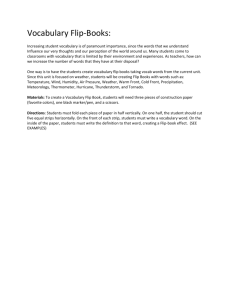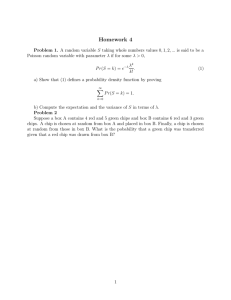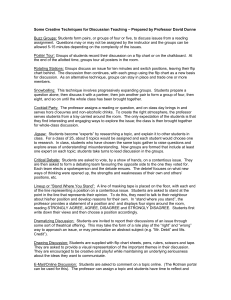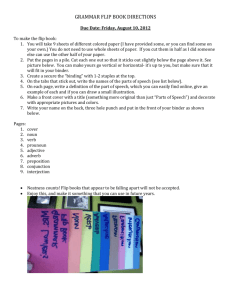Packaging for the future. Supply chain of packaging
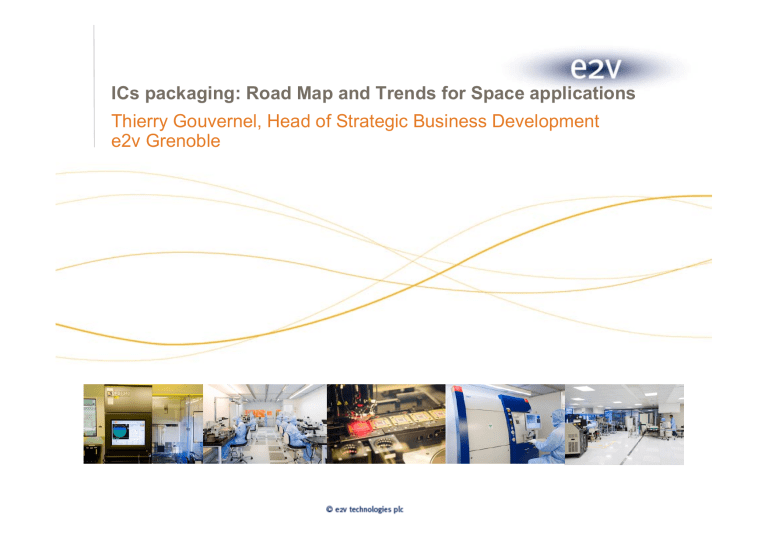
ICs packaging: Road Map and Trends for Space applications
Thierry Gouvernel, Head of Strategic Business Development e2v Grenoble
Needs
Multi die
Stacked die
2000 IO High power dissipation
New product needs
0.8 mm pitch
High frequency
Hermetic / Space
Flip Chip
300 mm
65 nm
& beyond
Evolution of
Wafer Technology
Bond Over
Active low k
Mainstream adhesives
Risk of
Raw Material
Obsolescence
SCI replacement
Slide 2
Packaging products & process
Where are we today?
Wire bonding
Non hermetic
Ceramic DIL, PGA, QFP, BGA..
352 leads (800 wires ) )
32 µ m aluminium wedge 380 I/O
Ball bonding
SAC balls
High lead bumps
1 cm ² ² die
25 x 25 mm LGA
Solder column interposer
High lead bumps
1 cm ² die
33 x 33 mm LGA
High lead balls
600 m ² ² , class ISO5 (100)
500 m ² ² , class ISO6 (1000) nb : preseal in class ISO 4 (10)
Slide 3
Road Map
Package Design & Assembly Process Capabilities
Thermal Interface
Material
Mainstream adhesive materials
(die bond)
Seam welding
High density routing
2013 2011 2012
Fine pitch Au ball bonding
50um
Increased signal / power integrity
65 nm
300 mm saw
& die bond
Die stacking
…
45 nm
Laser saw
Next technology nodes
Slide 4
Package Road Map
Kovar ring packages
(Seam welding)
MCM flip chip
Hermetic flip-chip
(Seam Welding)
Stacked die
2011 2012 2013 speed
3 Ghz
1200
I/O count
Heatspreader flip chip
2000
6 GHz
Large Hi Rel quasi hermetic flip chip
…
…
Hi-rel organic
SIP,
WLCSP,..
…
Slide 5
Technical Solutions
Focus on : seam welding
Current seal technology for hermetic packages (AuSn reflow) is performed at more than 300°C.
This temperature is now an important drawback, and seam welding becomes mandatory for :
gold wire bonding (condition for very fine pitch)
hermetic flip chip / underfill
use of mainstream die attach adhesives (epoxies,..) instead of high temperature specific materials, such as silver glass
and, more generally, use of organic materials in the cavity for specific applications
(getters, stacked die, Thermal Interface..)
compatibility with some wafer technologies which cannot withstand high temperature
For future products, this will lead to the addition of a kovar ring on package.
Slide 6
Technical Solutions
Focus on : Extended flip chip – Hermetic flip chip
Flip chip assembly has been performed at e2v for more than 10 years for military grade, up to 1 cm², 1200 bumps.
In the next years, this capability shall extend to :
Larger dice (up to 2 cm²), high pin count
Smaller bump pitch
Low k wafers
Hermetic flip chip or Quasi hermetic (HiTCE ceramics)
Lid
Flip Chip Die
Attach
Underfill
Seam welding
Kovar ring
Au finishing
Ceramic BGA
Slide 7
Global trends - Discussion
Mainstream use
On one side : Hi Rel / space market is becoming a specific requirement
On the other side : materials and equipements suppliers implement company / factory merges, which often leads to low runners EOL
In order to guarantee long term availability, we must use, as much as possible, mainstream materials / process / equipments
Hermeticity
It is still the baseline for ICs & should remain for several years.
Nethertheless, attention should be paid to technologic evolutions in order to assess organic substrates, quasi hermetic solutions, etc…
Need for community support, in order to
develop or adapt materials / process / equipments for space applications
assess reliability in Space environment
develop ESCC specifications for flip chip, stacked die, etc…
Slide 8
